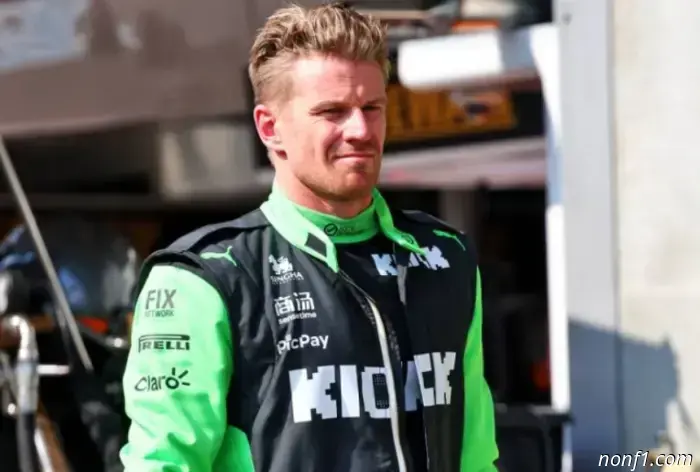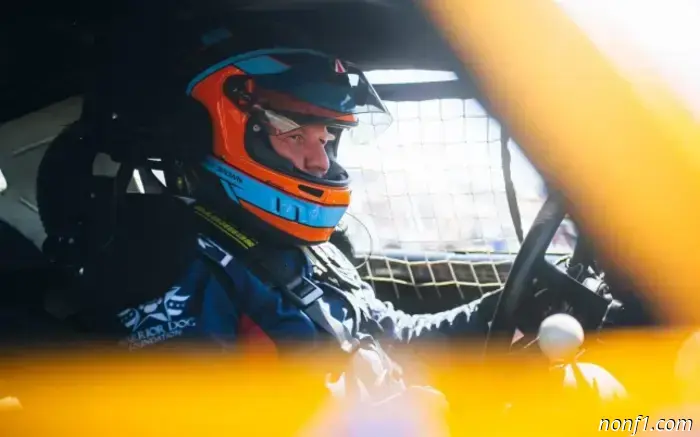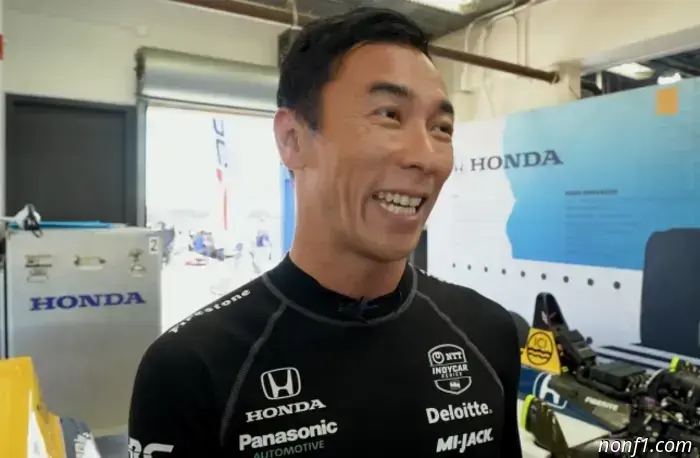
Hülkenberg: If something doesn't work out, it's qualifying.
Sauber's fortunes in mid-season were clearly on the rise: Nico Hülkenberg unexpectedly reached the podium at Silverstone, and since Barcelona he has scored points at four of six races. His young teammate, Gabriel Bortoleto, was not far behind, finishing in the top ten three times in the last four races.
“Sauber should be considered the winner among the midfield teams, not Williams or Aston Martin,” says Christian Danner, a former driver and now an expert at Motorsport Magazine.
But does that mean fans can expect another run of good results from Hülkenberg after the summer break?
An Austrian publication recalled the veteran German's statistics — he is in his 15th Formula 1 season — in a few summer races: in Spain he started 15th and finished 5th; in Canada he started 11th and took 8th; and in Austria he recovered from starting last to finish 9th.
One might suppose that if his starting positions had been higher the race results could have been different. It was previously thought that extracting the maximum from the car in qualifying was one of Nico's strengths. But this year the picture has changed: on Saturdays he was knocked out in the first session in ten of 14 events, and he hasn't reached the final part of qualifying even once.
Meanwhile Bortoleto has reached the final sessions three times — in Austria, Belgium and Hungary.
“If something hasn't worked for me this year, it's the qualifying sessions. They're either unsuccessful or not as smooth as usual,” admits Hülkenberg.
There are various reasons. To start with, this is his first season at Sauber, and he had to adapt not only to a new car but also to work with the Swiss team, find a common language with the engineers, etc. Moreover, at the start of the season the C45 was not particularly effective, and it wasn't easy to drive.
Thanks to technical upgrades that Sauber gradually introduced, handling became somewhat better, but this did not reflect in Nico's qualifying results. This is partly due to the incredible closeness of results in the 2025 season.
“When all the times fit within one tenth of a second, the margins are minimal,” Nico commented. “If something is wrong even with one small detail, it usually becomes the deciding factor and prevents you from getting beyond the first part of qualifying.”
The score of their qualifying duels is 7:10 in favour of the Brazilian, and on average Hülkenberg is 0.46 seconds slower than his teammate. Hülkenberg is 17 years older, yet he categorically denies that this could affect his speed. But the fact remains: this year Hülkenberg ranks last in the championship on qualifying metrics, and he intends to do everything possible to change this unenviable situation after the summer break.

Other articles
 Brown: We're trying to delay the day when we can no longer win.
In an interview with Racer, Zak Brown spoke about what he considers the key to success in motorsport, since his experience working at McLaren unequivocally confirms the truth of his words.
Brown: We're trying to delay the day when we can no longer win.
In an interview with Racer, Zak Brown spoke about what he considers the key to success in motorsport, since his experience working at McLaren unequivocally confirms the truth of his words.
 Bottas shared an impressive photo after the cycling race.
Today is a rare day when I have to tell about the consequences of dangerous adventures that involved two motorsport veterans...
Bottas shared an impressive photo after the cycling race.
Today is a rare day when I have to tell about the consequences of dangerous adventures that involved two motorsport veterans...
 Vettel: The new regulations don't entirely convince me.
Sebastian Vettel is somewhat skeptical of the new Formula 1 technical regulations that will take effect in 2026.
Vettel: The new regulations don't entirely convince me.
Sebastian Vettel is somewhat skeptical of the new Formula 1 technical regulations that will take effect in 2026.
 Takuma Sato got behind the wheel of a historic Williams car.
This weekend at the traditional August motorsport celebration, the Monterey Reunion in California, Takuma Sato got behind the wheel of the historic Williams FW11 with its mighty Honda turbo engine...
Takuma Sato got behind the wheel of a historic Williams car.
This weekend at the traditional August motorsport celebration, the Monterey Reunion in California, Takuma Sato got behind the wheel of the historic Williams FW11 with its mighty Honda turbo engine...
Hülkenberg: If something doesn't work out, it's qualifying.
It used to be thought that the ability to get the most out of the car in qualifying was one of Nico Hülkenberg’s strengths. But this year the picture has changed...
